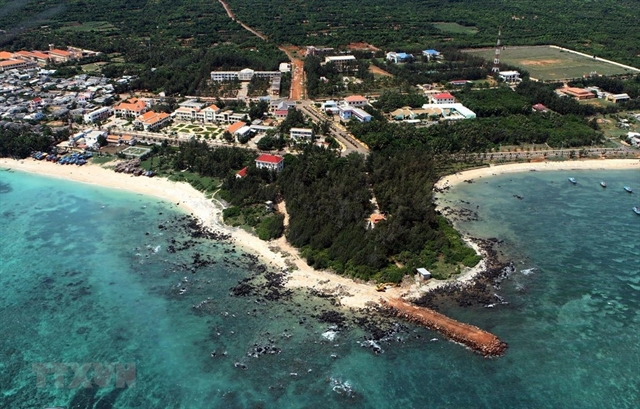 Society
Society


|
| Bình Thuận Province hopes to improve its business environment and thus economic competitiveness. — VNA/VNS Photo |
BÌNH THUẬN – Bình Thuận Province is seeking to improve its ranking in the Provincial Competitiveness Index this year.
According to the 2022 PCI survey by the Việt Nam Chamber of Commerce and Industry, it ranked 42nd out of 63 provinces and cities, down 21 places from the previous year and its lowest level ever.
Speaking at a conference on how to improve the PCI ranking and business climate earlier this week, Đoàn Anh Dũng, Chairman of the Bình Thuận People’s Committee, said the province had frankly acknowledged the limitations and weaknesses that led to its slide.
Bình Thuận is among provinces with average economic performance, according to the provincial leader.
So it has to find ways to improve its business environment and enhance its competitiveness, and strive in 2023 and the following years to climb into the top 30 in the PCI and also Provincial Green Index.
He said the business support services, transparency, land access and tenure, and provincial leadership proactivity sub-indexes saw their scores fall, dragging its PCI ranking down.
To improve its ranking again, Bình Thuận planned to create a level playing field for all businesses and have suitable measures to support small and micro businesses, he said.
It would continue to work on administrative reform, especially in areas such as taxes and fees, land administration and social insurance, and make inspections less burdensome for businesses, he said.
Dũng also highlighted the need to improve business consultation and promote the role of business associations.
Experts told the meeting that localities should create mechanisms and policies to support small and medium-sized enterprises through funding support, information and training and policy advice.
Small businesses create jobs and ensure social security along with providing logistics and products for large businesses, they pointed out.
Dũng said the province was determined to promote the use of IT to reduce the unofficial costs incurred by businesses.
It would set up hotlines for feedback from the public and businesses, and provincial and local leaders needed to hold dialogues with business communities to quickly solve problems, he said.
His administration would step up oversight of public officials, and those found causing trouble for businesses or violating regulations would be severely punished, he added. – VNS




